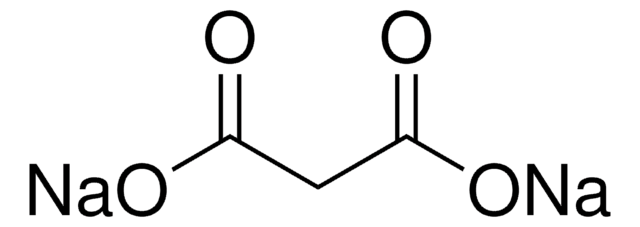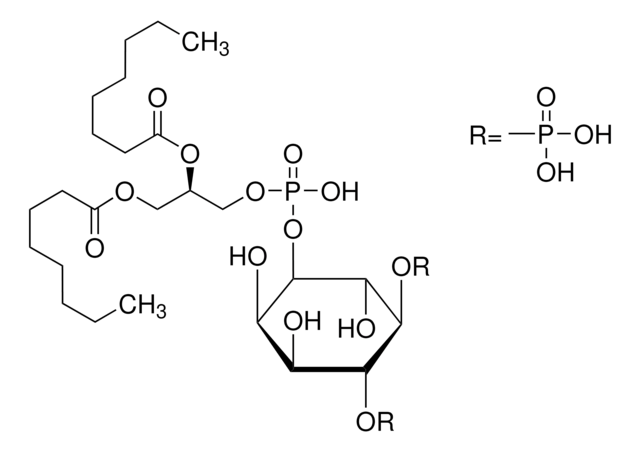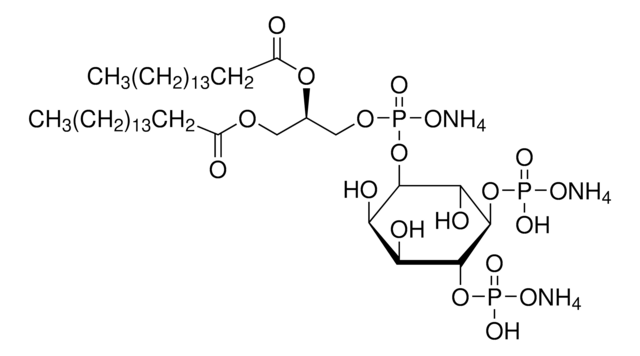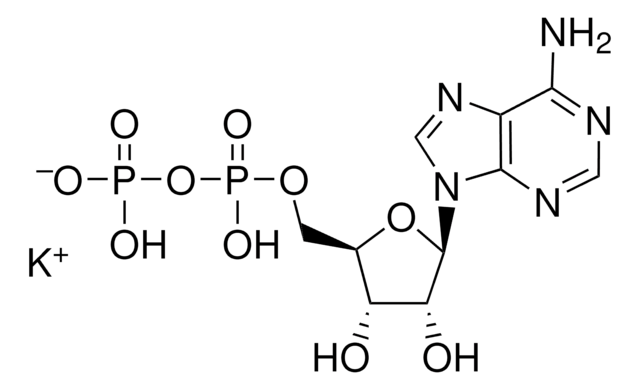850185P
Avanti
08:0 PI(4,5)P2
Avanti Research™ - A Croda Brand
Synonym(s):
PIP2[4′,5′](8:0/8:0); 110665
About This Item
Recommended Products
description
1,2-dioctanoyl-sn-glycero-3-phospho-(1′-myo-inositol-4′,5′-bisphosphate) (ammonium salt)
Assay
>99% (TLC)
form
powder
packaging
pkg of 1 × 100 μg (with stopper and crimp cap (850185P-100ug))
pkg of 1 × 500 μg (with stopper and crimp cap (850185P-500ug))
manufacturer/tradename
Avanti Research™ - A Croda Brand
lipid type
cardiolipins
phospholipids
shipped in
dry ice
storage temp.
−20°C
SMILES string
[H][C@@](COP([O-])(O[C@H]1[C@H](O)[C@@H](OP(O)([O-])=O)[C@H](OP([O-])(O)=O)[C@@H](O)[C@H]1O)=O)(OC(CCCCCCC)=O)COC(CCCCCCC)=O.[NH4+].[NH4+].[NH4+]
General description
Application
Packaging
Legal Information
Storage Class Code
11 - Combustible Solids
Regulatory Listings
Regulatory Listings are mainly provided for chemical products. Only limited information can be provided here for non-chemical products. No entry means none of the components are listed. It is the user’s obligation to ensure the safe and legal use of the product.
JAN Code
850185P-BULK:
850185P-500UG:
850185P-100UG:
850185P-VAR:
Certificates of Analysis (COA)
Search for Certificates of Analysis (COA) by entering the products Lot/Batch Number. Lot and Batch Numbers can be found on a product’s label following the words ‘Lot’ or ‘Batch’.
Already Own This Product?
Find documentation for the products that you have recently purchased in the Document Library.
Customers Also Viewed
Our team of scientists has experience in all areas of research including Life Science, Material Science, Chemical Synthesis, Chromatography, Analytical and many others.
Contact Technical Service














